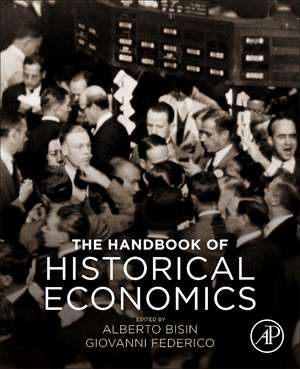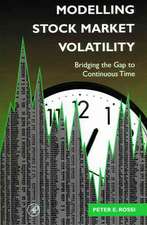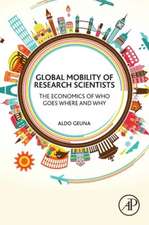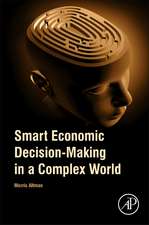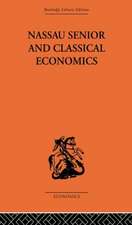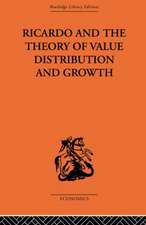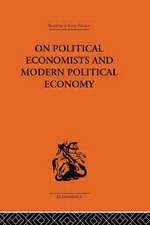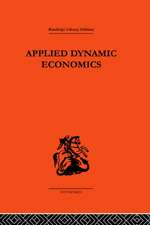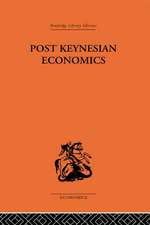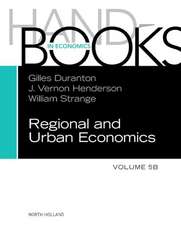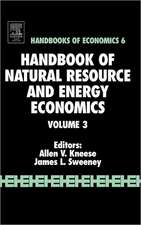The Handbook of Historical Economics
Editat de Alberto Bisin, Giovanni Federicoen Limba Engleză Paperback – 26 apr 2021
- Provides an historical outline of the two cliometric revolutions, highlighting the similarities and the differences between the two
- Surveys the issues and principal results of the "second cliometric revolution"
- Explores innovations in formulating hypotheses and statistical testing, relating them to wider trends in data-driven, empirical economics
Preț: 584.62 lei
Preț vechi: 748.67 lei
-22% Nou
Puncte Express: 877
Preț estimativ în valută:
111.87€ • 121.90$ • 94.26£
111.87€ • 121.90$ • 94.26£
Carte tipărită la comandă
Livrare economică 16-30 aprilie
Livrare express 18-22 martie pentru 104.19 lei
Preluare comenzi: 021 569.72.76
Specificații
ISBN-13: 9780128158746
ISBN-10: 0128158743
Pagini: 1002
Dimensiuni: 191 x 235 x 53 mm
Greutate: 1.68 kg
Editura: ELSEVIER SCIENCE
ISBN-10: 0128158743
Pagini: 1002
Dimensiuni: 191 x 235 x 53 mm
Greutate: 1.68 kg
Editura: ELSEVIER SCIENCE
Public țintă
Economists and economic historians as well as upper-division undergraduates and graduate students in economics who are interested in the systematic application of economic theory, econometric techniques, and other formal or mathematical methods to the study of history.Cuprins
1. An historical outline of the two cliometric revolutions, highlighting the similarities and the differences between the two
2. A survey of the issues and the main results of the second cliometric revolution
3. A discussion of the innovations in formulating hypotheses and statistical testing, relating them to wider trends in economics towards a more data-driven, empirical approach
2. A survey of the issues and the main results of the second cliometric revolution
3. A discussion of the innovations in formulating hypotheses and statistical testing, relating them to wider trends in economics towards a more data-driven, empirical approach
